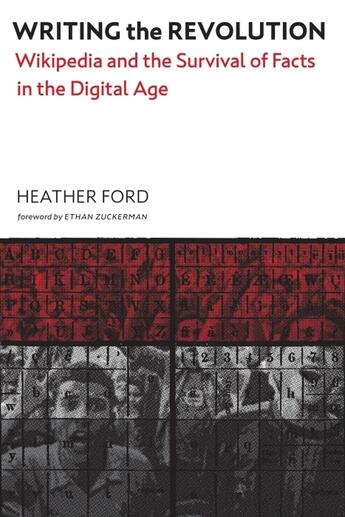-
Date de parution : 15/11/2022
-
Editeur :
Mit Press
-
EAN : 9780262046299
-
Série :
(-)
-
Support :
Papier
Résumé:
B>A close reading of Wikipedias article on the Egyptian Revolution reveals the complexity inherent in establishing the facts of events as they occur and are relayed to audiences near and far./b>br>br>Wikipedia bills itself as an encyclopedia built on neutrality, authority, and crowd-sourced... Voir plus
B>A close reading of Wikipedias article on the Egyptian Revolution reveals the complexity inherent in establishing the facts of events as they occur and are relayed to audiences near and far./b>br>br>Wikipedia bills itself as an encyclopedia built on neutrality, authority, and crowd-sourced consensus. Platforms like Google and digital assistants like Siri distribute Wikipedias facts widely, further burnishing its veneer of impartiality. But as Heather Ford demonstrates in Writing the Revolution, the facts that appear on Wikipedia are often the result of protracted power struggles over how data are created and used, how history is written and by whom, and the very definition of facts in a digital age.br>;br>In Writing the Revolution, Ford looks critically at how the Wikipedia article about the 2011 Egyptian Revolution evolved over the course of a decade, both shaping and being shaped by the Revolution as it happened. When data are published in real time, they are subject to an intense battle over their meaning across multiple fronts. Ford answers key questions about how Wikipedias so-called consensus is arrived at; who has the power to write dominant histories and which knowledges are actively rejected; how these battles play out across the chains of circulation in which data travel; and whether history is now written by algorithms.
Donner votre avis














